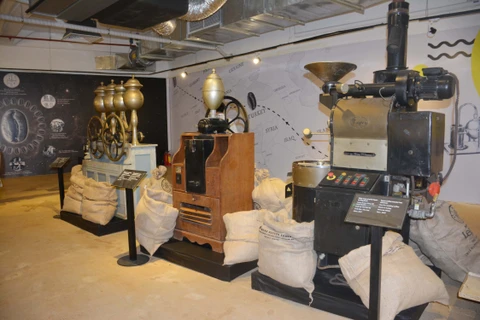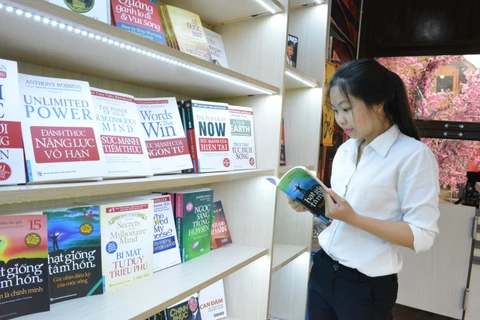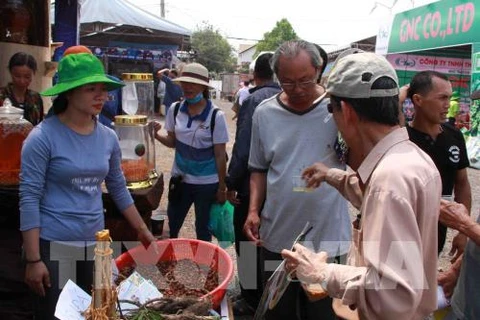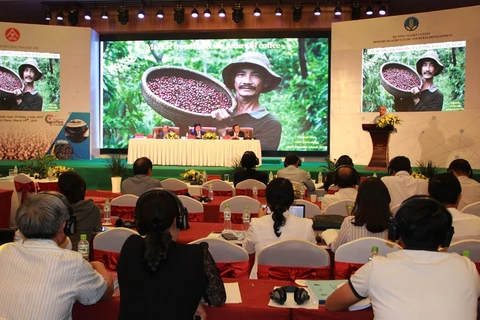 The coffee industry should focus on deep processing in the coming time to increase the quality and added value of its products. (Photo: VNA)
The coffee industry should focus on deep processing in the coming time to increase the quality and added value of its products. (Photo: VNA) Gia Lai (VNA) – The coffee industry should focus on deep processing in the coming time to increase the quality and added value of its products, according to insiders.
To realise this goal, regions like the Central Highlands – Vietnam’s coffee capital – must take measures in technical processes, from seed selection, watering, nutrition, and pest management to harvesting, preliminary processing, and diversification of crops, said Dr. Truong Hong, acting director of the Central Highlands Agriculture and Forestry Science Institute. Additionally, he noted, they must promote their coffee products and invite investment in deep processing to ensure stable productivity, high quality, and sustainable development.
Chairman of the board of directors for Vinh Hiep Co., Ltd., Thai Nhu Hiep, said that in order to increase the value and competitiveness of Vietnamese coffee in general and Gia Lai in particular, it is necessary to build high-quality raw material areas according to the organic farming process, thus creating the best and most competitive coffee products.
He suggested ministries and relevant departments offer legal assistance for roasted coffee producers and establish a Vietnamese roasted coffee association to protect the interests of local businesses.
Director of the Gia Lai ACOM coffee processing factory Nguyen Truong Hung said his facility produces over 30,000 tonnes of coffee annually and exports over 50 million USD worth of goods thanks to the province’s incentives, such as the exemption of land lease for 10 years and implementation of corporate tax support policies.
Currently, the factory’s products are exported to all markets, including Europe and Japan, he said. He added that previously, only its coffee beans were exported to the European Union and the Republic of Korea and entitled to zero percent tariff, while processed coffee products were subject to a high tax rate of 15-20 percent.
Vietnam has signed free trade agreements (FTAs) with these markets, which is an excellent opportunity for businesses to invest in processing coffee to boost exports, he said.
Vietnam is the second biggest exporter of coffee beans in the world, after Brazil. The Central Highlands, more specifically, has many advantages in soil and climate suitable for coffee development.
The region is home to nearly 600,000 ha of coffee farms, making up around 90 percent of the country’s total coffee areas.Gia Lai province in particular has 94,000 ha of coffee farms, ranking third in the Central Highlands with the average output of some 200,000 tonnes of coffee each year. –VNA
VNA
























